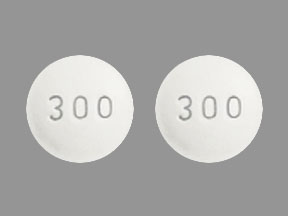Mixed grass pollens allergen extract Disease Interactions
There are 4 disease interactions with mixed grass pollens allergen extract.
Allergen immunotherapy (applies to mixed grass pollens allergen extract) asthma
Major Potential Hazard, Moderate plausibility. Applicable conditions: Allergies
The use of allergen immunotherapy, such as mixed grass pollens, ragweed pollen, house dust mite allergen extract, and timothy grass pollen allergen extracts may cause severe allergic reactions such as anaphylaxis and laryngopharyngeal edema. These agents are contraindicated in patients with severe, unstable or uncontrolled asthma, a history of any severe systemic allergic reaction, and a history of any severe local reaction to sublingual allergen immunotherapy as these conditions could compromise breathing and be life-threatening.
Allergen immunotherapy (applies to mixed grass pollens allergen extract) eosinophilic esophagitis
Major Potential Hazard, Moderate plausibility.
The use of allergen immunotherapy, such as mixed grass pollens, ragweed pollen, house dust mite allergen extract, and timothy grass pollen allergen extracts, is contraindicated in patients with a history of eosinophilic esophagitis. This condition could compromise swallowing, lead to food impaction, vomiting, and heartburn which may cause permanent damage to the esophagus.
Allergen immunotherapy (applies to mixed grass pollens allergen extract) cardiovascular complications
Moderate Potential Hazard, Moderate plausibility. Applicable conditions: Heart Disease, Cardiovascular Disease
The use of allergen immunotherapy, such as mixed grass pollens, ragweed pollen, house dust mite allergen extract, and timothy grass pollen allergen extracts may not be suitable for patients with certain medical conditions that may reduce the ability to survive a serious allergic reaction or increase the risk of adverse reactions after epinephrine administration. Examples of these medical conditions include but are not limited to markedly compromised lung function (either chronic or acute), unstable angina, recent myocardial infarction, significant arrhythmia, and uncontrolled hypertension. It is recommended to exercise care in these patients.
Mixed grass pollens allergen extract (applies to mixed grass pollens allergen extract) lactose intolerant
Moderate Potential Hazard, Moderate plausibility. Applicable conditions: Lactose Intolerance
The product Oralair, of mixed grass pollens allergen extract, contains lactose monohydrate as one of the inactive ingredients in its formulation. Care should be exercised when using this agent in patients with rare hereditary problems of galactose intolerance, severe lactase deficiency with a severe degree of intolerance to lactose-containing products, or of glucose-galactose malabsorption.
Switch to professional interaction data
Mixed grass pollens allergen extract drug interactions
There are 139 drug interactions with mixed grass pollens allergen extract.
Mixed grass pollens allergen extract alcohol/food interactions
There is 1 alcohol/food interaction with mixed grass pollens allergen extract.
More about mixed grass pollens allergen extract
- mixed grass pollens allergen extract consumer information
- Check interactions
- Compare alternatives
- Side effects
- Dosage information
- During pregnancy
- Drug class: allergenics
- En español
Related treatment guides
Drug Interaction Classification
| Highly clinically significant. Avoid combinations; the risk of the interaction outweighs the benefit. | |
| Moderately clinically significant. Usually avoid combinations; use it only under special circumstances. | |
| Minimally clinically significant. Minimize risk; assess risk and consider an alternative drug, take steps to circumvent the interaction risk and/or institute a monitoring plan. | |
| No interaction information available. |
See also:
Further information
Always consult your healthcare provider to ensure the information displayed on this page applies to your personal circumstances.


